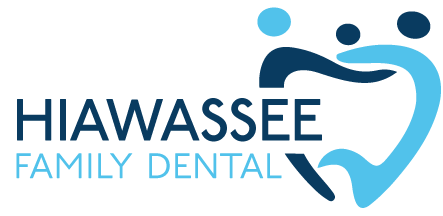
22 Apr 3 Best Practices for Preventing Oral Cancer
The National Library of Medicine calls oral cancer “one of the highly prevalent cancers worldwide.” It is “a leading cause of mortality in certain regions” and “a major public health problem.” They report that “Late diagnosis, high mortality rates and morbidity are characteristics of the disease worldwide.”
This characterization of the disease may be grim, but it is nonetheless true. That is why April marks Oral Cancer Awareness Month. This month, we take time to recall the threat that oral cancer poses, have compassion for those who are presently suffering from it, and take active steps to protect ourselves from becoming the victims of oral cancer ourselves.
What is oral cancer?
As Healthline reports, the term “oral cancer” is merely an umbrella for the many different varieties of cancer that one can have in the various components of the mouth. There is gum cancer, throat cancer, floor-of-the-mouth cancer, mucosal melanoma…and many, many more. However, as Healthline explains, the cancer known as squamous cell carcinoma “is the most common type of oral cancer. This is because squamous cells line your entire mouth and throat. Almost every case of oral cancer is SCC.”
As the disease goes, oral cancer is not the most fatal. According to the American Cancer Society, those with lip cancer, for instance, have a 91% 5-year survival rate compared with those living comparatively “normal” lives. Those with tongue cancer have a 69% 5-year survival rate, and those with oropharynx cancer have a 52% survival rate. Oral cancer is certainly something that can be recovered from. However, like any cancer, the risk of escalation is present, and the disease itself takes a significant toll on patient and family alike. To avoid this toll, consider implementing the following practices.
1- Stop smoking.
If you’ve heard it once, you’ve probably heard it a thousand times… and yet, that doesn’t make it less true: smoking will destroy your dental health. The scary part is that it doesn’t just stop with your teeth. As Healthline reports, “Smoking tobacco is the number one risk factor for oral cancer. The very high risk associated with oral tobacco also applies to smokeless tobacco and e-cigarettes. By some estimates, smokers have a 5–10 times higher chance of dying from oral cancer than people who never smoked. The more tobacco you use, the greater your risk.”
The Memorial Sloan Kettering Cancer Center adds: “Studies have shown that as many as eight in ten people with mouth cancer are tobacco users.” The evidence is clear: smoking dramatically increases your chances of contracting oral cancer.
If you have already contracted oral cancer, it is still worthwhile to quit smoking. Tobacco is harmful for one’s oral health overall. As the CDC reports, “Untreated tooth decay is higher in people who smoke cigarettes. Over 40% of adults aged 20 to 64 who currently smoke cigarettes have untreated tooth decay.” They also point out that “About 43% of adults aged 65 or older who currently smoke cigarettes have lost all of their teeth.”
The evidence is not difficult to interpret: smoking dramatically decreases your dental health, and can even cause oral cancer. If you need help quitting, get others involved to provide accountability, or take advantage of public resources, such as calling 1-800-QUIT-NOW.
2- Reduce your alcohol intake.
Can how much you drink really affect your chances of getting cancer? According to the National Cancer Institute, there are “multiple ways that alcohol may increase the risk of cancer.” As the British Dental Journal explains, “There is now considered to be no safe limit for alcohol intake. Studies have shown that risk of mouth cancer increases with greater alcohol intake (in particular when associated with the use of tobacco).”
This last comment is no casually dropped phrase. While reducing your alcohol intake will benefit your health on its own terms, the impact is even greater if you struggle with tobacco use, as well. According to epidemiological research cited by the National Cancer Institute, “…people who use both alcohol and tobacco have much greater risks of developing cancers of the oral cavity, pharynx (throat), larynx, and esophagus than people who use either alcohol or tobacco alone.” Or, as the Oral Cancer Foundation puts it, “these substances synergistically interact, increasing each other’s harmful effects.” By reducing your intake of alcohol, tobacco, or—in the best-case scenario—both, you stop the downward-spiral effect and work to minimize the risk factors that are under your control.
3- Keep regular dental visits.
In light of what we’ve seen about the danger of oral cancer and its alarming prevalence, this third practice is perhaps the most important: keep regular dental appointments. As UCLA Health warns, “Oral cancer is harder to detect early without regular screening, and late-stage oral cancer can be lethal.” So don’t wait. While the frequency with which you visit the dentist will depend on your specific needs, it’s best to go at least every 6 to 12 months. A routine visit will usually cover oral cancer screening.
Final Thoughts
As a “highly prevalent” cancer and a “leading cause of mortality worldwide,” oral cancer is certainly something to watch out for. But you don’t have to live in fear. There are practical steps you can take today to lower your risk of contracting the disease and maximizing your healthspan. Three of the most important, in terms of dental health, are to quit smoking, reduce your alcohol intake, and keep regular dental visits. If you do all three of these things, your risk of oral cancer will plummet, and your dentist will be providing oversight should anything go wrong. If you have questions or concerns about oral cancer or would simply like to set up your next appointment, please contact our office today.

About Our Team
Dr. Hargrove and our excellent team her at Hiawassee Family Dental have over 30 years of experience in the field of dentistry. We’re passionate about superior patient care and education.
Contact us to schedule your next appointment!


Sorry, the comment form is closed at this time.